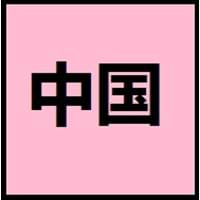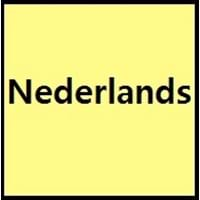Countries
China, Hong Kong, Macau, Singapore, Taiwan
Aruba, Belgium, Curacao, Netherlands, Sint Maarten, Suriname
National Language
China, Taiwan
Aruba, Belgium, Curacao, Netherlands, Sint Maarten, Suriname
Second Language
Republic of Brazil
South Africa
Speaking Continents
Asia
Asia, Europe, North America, South America
Minority Language
Indonesia, Malaysia
France, Germany, Indonesia
Regulated By
Chinese Language Standardization Council, National Commission on Language and Script Work, Promote Mandarin Council
Nederlandse Taalunie (Dutch Language Union)
Interesting Facts
- Chinese language is tonal, since meaning of a word changes according to its tone.
- In Chinese language, there is no grammatical distinction between singular or plural, no declination of verbs according to tense, mood and aspect.
- Dutch language consist of extremely long words. The longest dutch word in the dictionary is 53 letters long.
- There exists 75% borrowed words in Dutch language, and a lot of those are French, English and Hebrew.
Similar To
Not Available
German and English Languages
Derived From
Not Available
Not Available
Alphabets in
Chinese.jpg#200
Dutch-Alphabets.jpg#200
Scripts
Chinese Characters and derivatives
Latin
Writing Direction
Left-To-Right, Horizontal, Top-To-Bottom
Left-To-Right, Horizontal
Thank You
谢谢 (Xièxiè)
dankjewel
How Are You?
你好吗? (Nǐ hǎo ma?)
hoe gaat het met je?
Good Night
晚安 (Wǎn'ān)
goede Nacht
Good Evening
晚上好 (Wǎnshàng hǎo)
goedenavond
Good Afternoon
下午好 (Xiàwǔ hǎo)
goedemiddag
Good Morning
早安 (Zǎo ān)
goedemorgen
Please
请 (Qǐng)
alsjeblieft
I Love You
我爱你 (Wǒ ài nǐ)
Ik hou van jou
Excuse Me
劳驾 (Láojià)
pardon
Dialect 1
Mandarin
Gronings
Where They Speak
China, Malaysia, Singapore, Taiwan
Netherlands
Where They Speak
China, United States of America
Denmark, Germany, Netherlands
Where They Speak
China, Malaysia, Singapore, Vietnam
Belgium, Netherlands
Native Name
中文 (zhōngwén)
Nederlands
Alternative Names
Not Available
Hollands, Nederlands
French Name
chinois
néerlandais; flamand
German Name
Chinesisch
Niederländisch
Pronunciation
Not Available
[ˈneːdərlɑnts]
Ethnicity
Han
Dutch people
Origin
1250 BC
AD 450-500
Language Family
Sino-Tibetan Family
Indo-European Family
Subgroup
Not Available
Germanic
Branch
Not Available
Western
Early Forms
No early forms
Old Dutch, Middle Dutch and Dutch
Standard Forms
Standard Chinese
Standard Dutch
Signed Forms
Wenfa Shouyu 文法手語 ("Grammatical Sign Language", Signed Mandarin (Taiwan))
Signed Dutch (Nederlands met Gebaren)
Scope
Individual
Individual
ISO 639 6
Not Available
Not Available
Glottocode
sini1245
mode1257
Linguasphere
79-AAA
52-ACB-a
Language Type
Living
Historical
Language Linguistic Typology
Subject-Verb-Object
Subject-Object-Verb
Language Morphological Typology
Analytic, Isolating
Synthetic
All Chinese and Dutch Dialects
Most languages have dialects where each dialect differ from other dialect with respect to grammar and vocabulary. Here you will get to know all Chinese and Dutch dialects. Various dialects of Chinese and Dutch language differ in their pronunciations and words. Dialects of Chinese are spoken in different Chinese Speaking Countries whereas Dutch Dialects are spoken in different Dutch speaking countries. Also the number of people speaking Chinese vs Dutch Dialects varies from few thousands to many millions. Some of the Chinese dialects include: Mandarin, Wu. Dutch dialects include: Gronings , Low Saxon. Also learn about dialects in South American Languages and North American Languages.
Chinese and Dutch Speaking population
Chinese and Dutch speaking population is one of the factors based on which Chinese and Dutch languages can be compared. The total count of Chinese and Dutch Speaking population in percentage is also given. The percentage of people speaking Chinese language is 16.00 % whereas the percentage of people speaking Dutch language is 0.32 %. When we compare the speaking population of any two languages we get to know which of two languages is more popular. Find more details about how many people speak Chinese and Dutch on Chinese vs Dutch where you will get native speakers, speaking population in percentage and native names.
Chinese and Dutch Language Codes
Chinese and Dutch language codes are used in those applications where using language names are tedious. Chinese and Dutch Language Codes include all the international language codes, glottocodes and linguasphere.





